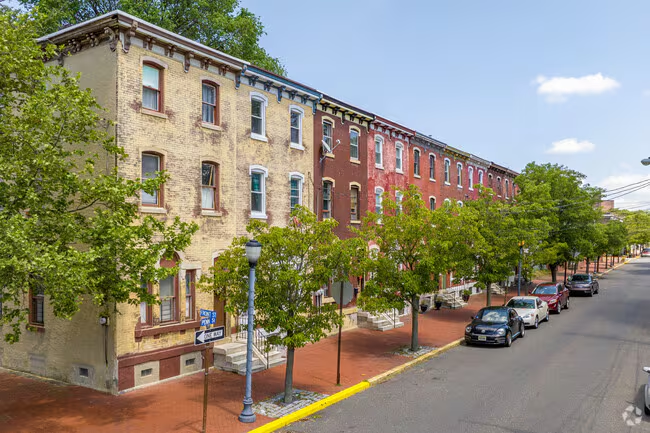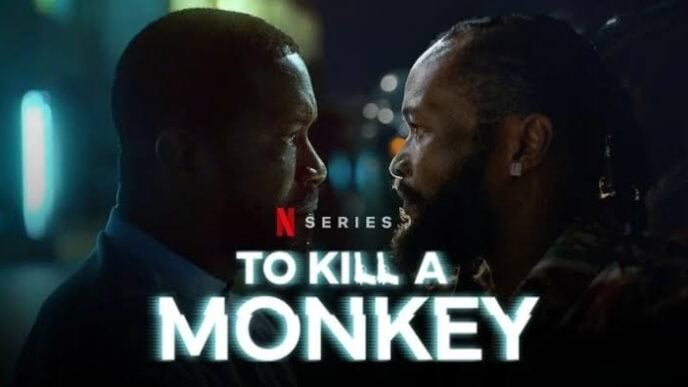BY FUNMI ADEBAJO
As a graduate student at Rutgers University–Camden pursuing a degree in public administration, I have had the unique opportunity of engaging with a wide range of stakeholders—including county administrators, nonprofit leaders, parents, youth, and individuals experiencing homelessness.
Coupled with the street sense and resilience shaped by my upbringing in Lagos, Nigeria, this experience has deepened my understanding of community needs and the nuances of strategic engagement in local and global contexts.
Thursdays are my favourite days, spent riding with The Village Initiative, a co-response outreach programme run in partnership with the Camden County Police Department. The initiative is designed to support individuals in crisis by bringing care directly to those experiencing homelessness or mental health challenges. We cruise slowly in the police vans through the city, identifying individuals experiencing homelessness or mental health crises, distributing care kits and wound supplies, and connecting them to essential services like shelter referrals and ID recovery support.
Advertisement
But my role extended beyond the cruising. As part of my graduate research, I was tasked with studying national best practices to support Camden City in developing a Community Crisis Response Team (CCRT) for non-violent emergencies. I reviewed models from cities like Olympia, Denver, and Seattle; programmes where trained peer navigators and behavioural health professionals respond to crises, often without police. My task is to design a framework that Camden City can adapt — one that prioritises trauma-informed care, not handcuffs.
One day, what started as a peaceful outreach drive quickly escalated. The police officer responded to a radio and soon our car was flying through the streets, sirens blaring. I clutched my seat, thinking about my 5-year-old daughter in school and my grandma in Ibadan. When we arrived at the scene, there were already nine police vans and at least ten officers present. I was startled by the volume of the urgency of the response; the cost, the impeccability of the coordination and the weight of taxpayer resources expended for that single call. But I also understood it. Just weeks earlier, one of the police officers had been stabbed by a passerby during an unprovoked attack, and he nearly lost his life.
But I noticed something else, too. Despite the tension, the officers didn’t escalate with aggression. They didn’t shout. They didn’t wave their guns. They approached with calmness and an unimposing alertness, and you could feel each person’s authority in their gait. They were firm, yet respectful, but not hostile. Despite the number of police officers present, there was a noticeable sense of trust between the police and the residents.
Advertisement
As I watched them, I was reminded of how very different things often play out at home, police brutality, intimidation, the ENDSARS campaign, what sparked it in the first place and what is still so painfully lacking in the Nigerian Police Force. I was reminded of how Nigeria still battles with a policing culture that equates authority with fear, intimidation, and unchecked violence.
Just days after the incident in Camden, New Jersey, news broke from Ibadan, Nigeria: Kehinde Alade, a teenage boy, had been shot by a police officer while riding with his father on the way to an examination. Whatever the father’s role in the confrontation may have been, the fatal outcome was avoidable.
Despite the lessons from the #EndSARS movement, Nigeria still suffers under the weight of a policing culture rooted in fear, rather than protection. Fear is the official language of the Nigerian police, equipped with their unsightly guns, aggressive postures of control, and a lack of connection with the people. Community trust is nearly nonexistent, and the claim of the police being your friend is better believed on paper than experienced in person.
This is where Nigeria can learn from Camden’s evolving response.
Advertisement
Rather than asking police to respond to every crisis, Camden is building Community Crisis Response Teams (CCRTs); these are civilian-led models that include trained peer navigators and behavioural health experts. During my internship, I helped design two options for Camden’s future system:
A co-response model where clinicians ride alongside police but lead crisis interventions.
A civilian-led model that operates entirely independent of law enforcement, offering trauma-informed care through dispatch and mobile response units. These models are not perfect. But they are intentional and humane. They are rooted in the understanding that crisis care does not require intimidation — a lesson many American cities began to take seriously in the aftermath of George Floyd’s death, The same way George Floyd’s death shifted the trajectory of police reform in the U.S., the #EndSARS movement could have and still can redefine policing in Nigeria, if met with political will and systemic investment.
What this would look like for Nigeria is a national strategy anchored in trauma-informed public safety reform. It would mean integrating Crisis Intervention Teams (CIT) into every police command, with officers trained in tactical response, but most importantly in de-escalation, mental health awareness, and community engagement.
Advertisement
This would also mean piloting Community Crisis Response Teams in major cities like Lagos, Anambra, Kano and Abuja, made up of trained civilian responders and peer support specialists who can attend to non-violent emergencies without escalating harm. Finally, it would require institutionalising a culture of empathy and respect for human dignity.
Nearly four years after the #ENDSARS campaign, the killings haven’t stopped then what we need is not more weapons. We need more wisdom.
Advertisement
This latest tragedy should not just be another story of sorrow. We should make it a final push toward a policing system that prioritises community partnership over reactive enforcement. Because whether in Makoko or Camden, the role of the police is to protect and serve the communities with integrity, respect, and accountability and not to instil fear or perpetuate violence.
As a nation, we must move beyond hashtags to policy and beyond pain to prevention.
Advertisement
Rest in peace, Kehinde Alade.
Funmi Adebajo is a graduate student in Public Administration at Rutgers University–Camden She previously led education, economic empowerment and gender based response programs in underserved communities in Nigeria. Her work focuses on developing solutions to urban poverty, governance and community-centred policy reform across the U.S. and Africa.
Advertisement
Views expressed by contributors are strictly personal and not of TheCable.









